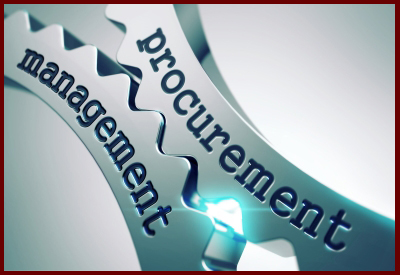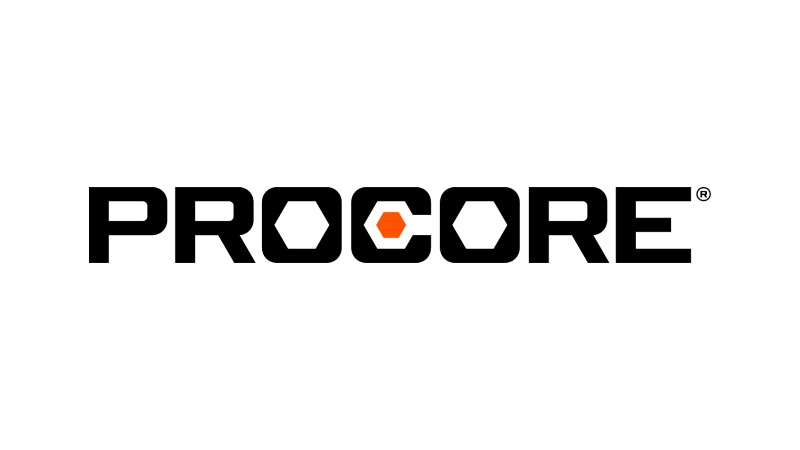Est-ce que sauver de l’argent en ligne vous fait sauver du temps?

Au cours de la dernière année, plusieurs ont parlé d’Amazon en ligne et comment cet acteur peut jouer un rôle positif dans le concept de MRO pour les acheteurs et les entrepreneurs. Mais parce que vous utilisez les services d’Amazon pour vos achats en tant que consommateurs ne signifie pas nécessairement qu’il s’agisse de la meilleure solution pour vos achats d’affaires en tant qu’entrepreneurs.
Le plus grand avantage de l’achat en ligne est l’économie de temps réalisée. En fait, pour la plupart des compagnies c’est un choix économique … déplaçant le coût de commander vers vous effectuant la tâche plutôt que passer une commande avec quelqu’un. Souvenez-vous de l’adage : le temps c’est de l’argent.
Pour les entrepreneurs, l’achat en ligne peut être efficace si vous savez bien planifier, que vous avez un entrepôt et que vous aimez magasiner en ligne.
Comment évaluez-vous votre temps?
Comment évaluez-vous votre temps? Celui de vos employés? Les entrepreneurs font historiquement plus d’argent avec les travaux effectués qu’avec leur marge de profit sur le matériel qu’ils utilisent. Ce qui signifie que votre temps est une valeur importante.
En même temps, vous désirez obtenir des prix compétitifs pour votre matériel et de la flexibilité. La flexibilité de passer votre commande au moment qui vous convient.
C’est ici que le commerce en ligne intervient.
For the past year many have talked about Amazon Supply and how it can benefit MRO buyers and contractors. But just because you use Amazon as a consumer does not mean it is the right solution for all of your business purchasing.
Much of the benefit of online ordering is saving time. In reality, for many companies it is cost transference … moving the cost of ordering to you doing the work rather than you placing an order with someone. And remember the adage of “time is money”.
For contractors, online can be effective if you are a planner, have a warehouse, or enjoy online shopping.
But do you value your time?
How much do you value your time? The time of your employees?
Contractors historical make more money based upon their labor than their mark-up on material. This then presumes that the value of your time is a precious commodity.
But at the same time you also want competitive material pricing and flexibility. Flexibility to place your order when you want to.
And that is where eCommerce comes in.
For a number of years many distributors have offered eCommerce, however, the systems have been “clunky”. Then came Grainger and other multi-line distributors and some online services with easier to use, more intuitive, websites. The benefits have been a wider product offering or lower pricing.
And now Amazon Supply who purports to want to put everyone out of business.
But it begs some questions:
• Can you plan a job in advance to wait a minimum of two days for material?
• While Amazon may be known for low prices, is Amazon Supply? (our research has shown otherwise for a number of products)
• Do you get paid for “hunting and pecking” to find the items you want to order?
• If you have a multi-phase project, do you have inventory capabilities?
• Are you willing to search for substitute brands, go to multiple websites or purchase online and through traditional distributors (and if your business with them declines significantly, will you get the same pricing you currently get?)
Are you
• Willing to pay for freight?
• Order from multiple distributors?
• Receive material in many packages?
• Not negotiate material price?
• Pay upfront or open a line of credit tied personally to you?
• Have an unclear return policy?
• Not talk to a person if you have questions?
And we’re not anti-online. In the words of a retailer, “An educated consumer is our (the) best customer.”
Understanding Amazon Supply
In the November issue of Canadian Electrical Wholesaler we asked the question of whether Amazon Supply could compete with traditional distributors by using traditional distributors’ inventory to serve MRO and contractor needs. But remember, the expectations of these two types of buyers can differ.
Earlier this fall we heard of a few projects in the U.S. Amazon Supply “quoted” and “fulfilled”.
Do you want this project?
The building owner, for some reason, wanted the general contractor to have the electrical and mechanical contractor quote the project via Amazon Supply and then award the business to Amazon Supply. The GC offered to pay the contractors for any excessive time efforts, if incurred, for purchasing from Amazon Supply.
The contractors received local bids as well as one through Amazon Supply. For Amazon Supply he had to use the website, chat and finally got to talk to someone at Amazon Supply.
From using the site he learned that Amazon Supply is designed for ordering individual line items, not project quantities. Additionally, freight became a significant issue (he did not sign-up for Amazon Prime to receive free shipping nor did Amazon recommend this.)
He identified many of the items, or acceptable substitutes, that he could. The Amazon Supply database, however, was lacking in information for many of the items that the contractor needed. There was much back and forth and Amazon Supply attempt to gather information and prices from electrical distributors … some cooperated, others did not.
And the contractor still needed to reach out to local distributors for wire, conduit and selected other material. Switchgear was not an issue as the “specified” brand was available, albeit through a distributor.
“Time consuming” was a real understatement throughout the process. Can only imagine what the contractor billed the GC for excess time!
While the bill of material was ordered from Amazon Supply what happened in the background was that orders were bounced off Amazon Supply’s stock or ordered from another source(s). As a contractor, knowing where material comes from is important, unless you have a friendly distributor who takes back others’ materials as long as they stock the line, if you have to return items. Visualize wall switches or plates coming from three different sources!
Billing from Amazon Supply is upon ordering (so much for giving contractors credit / dating) and either the contractor needs to pay via credit card or they need to arrange a line of credit from Amazon Supply. A friendly GC or client may front you the money to place the order (frequently happens, correct?)
And consider the issue of getting materials for change orders … as long as you’re willing to wait one to two days at best, perhaps a week if not paying for expediting shipping.
Do you ever have returns at the end of the project?
The contractor finished the project and had some overage that they needed to return. Standard practice when working with a distributor.
Not a problem, The contractor interacted with Amazon Supply to arrange a return, and Amazon Supply was going to pay for the freight, as you’d expect from a customer-oriented company.
Now here’s the fun.
The contractor had to pack the material, contact the shipping company and arrange for pick-up. Additionally, since the material was on the job site, the contractor had to drive it to the shipper or take it back to their office for a UPS pick-up.
Oh, and did we tell you that UPS does not ship to floors on construction sites? Yes, the contractor had to transport the material rather than a distributor staging it.
Back to the return.
The return also became confusing as Amazon Supply wanted the contractor to segment the return material based upon the distributor that the material it came from … over 60 different distributors! The contractor refused, but still had to do some to get money back, but the majority of the return went to an Amazon Supply facility in Las Vegas.
And of course, this is all non-billable time for a contractor.
If the building owner had not paid the difference, the electrical would have been 12% more expensive than purchasing from a local distributor.
Conclusion
And now many other distributors are offering eCommerce. The difference is many of them view this as an alternative order entry system for you, providing you the flexibility of ordering online, via phone, fax or email or visiting their counter.
It’s all about choice.
While the grass may appear greener on the other side, online is not always less expensive. As a consumer, buying online rather than a retailer can save you time. No need to go to the store when you can shop from home. As a contractor, when your time is billable, consider when you need the material as you time is money and when the material reaches you is when work starts.
While more contractors are buying online to save time, your choice in online site can be costly. Know the value of your time. Different sites have different value propositions.
David Gordon is president of Channel Marketing Group. Channel Marketing Group helps manufacturers and distributors accelerate sales generation and gain insights through channel strategy, marketing planning and market research initiatives. He can be reached at 919.488.8635 or dgordon@channelmkt.com.
Allen Ray is president of Allen Ray Associates Ltd. Allen is a veteran distribution consultant. He has helped manufacturers, distributors, business system developers and business data providers grow their productivity and businesses. He can be reached at 817.271.0236 or allen@allenray.com
Visit their industry blog at www.electricaltrends.com for more ideas and insights into profitably growing your business











